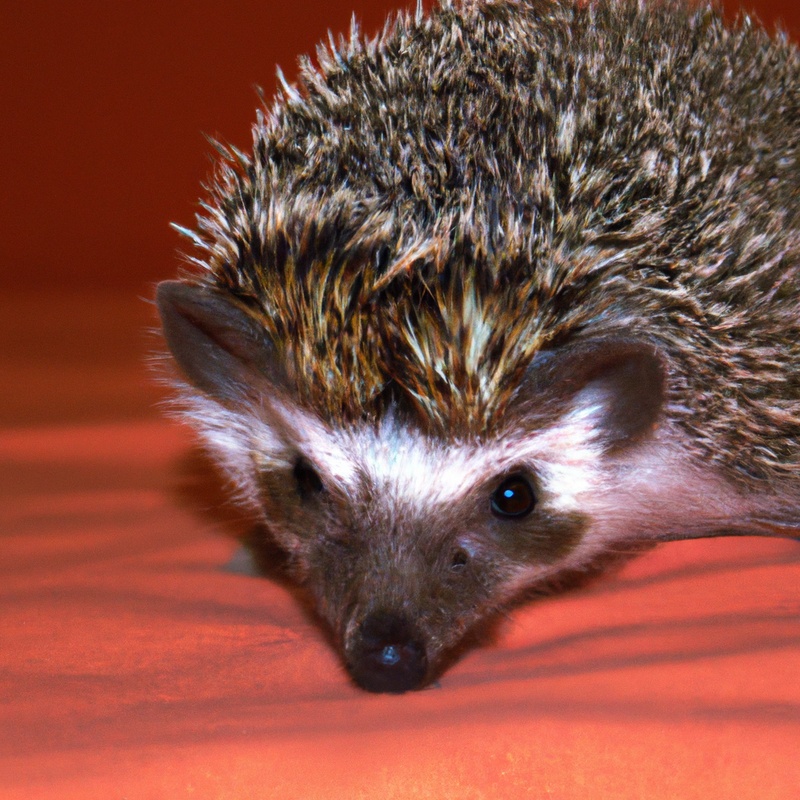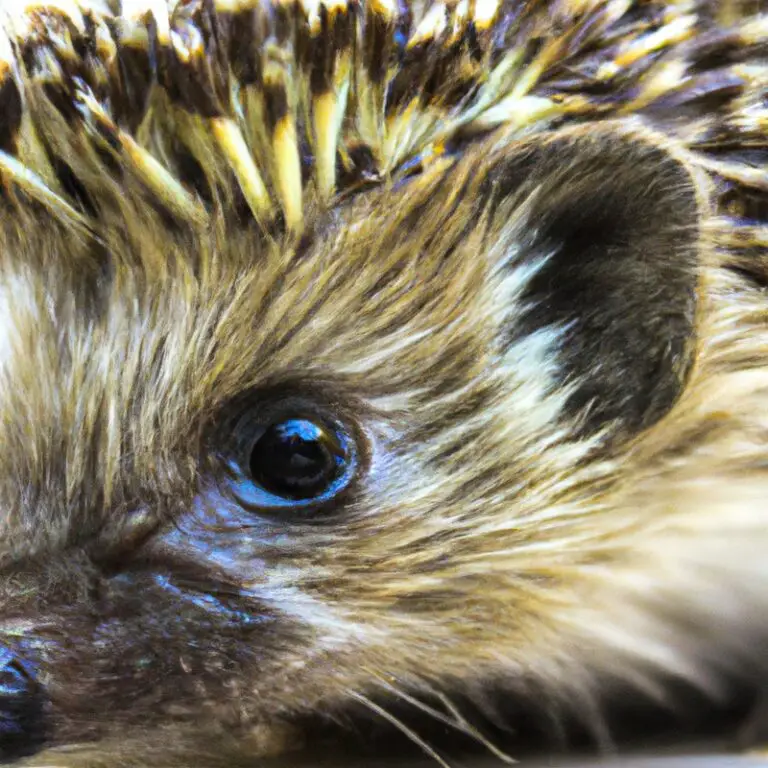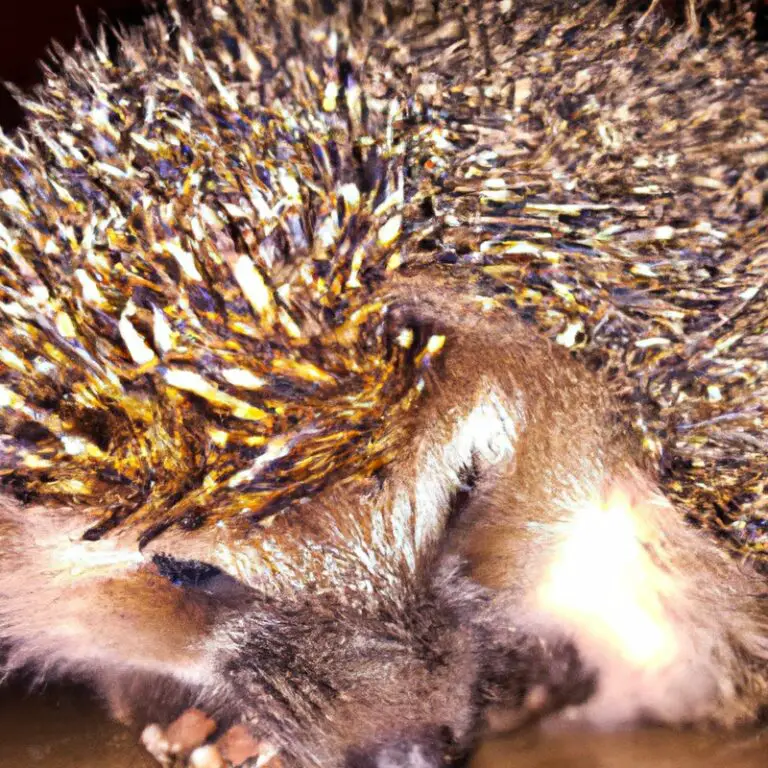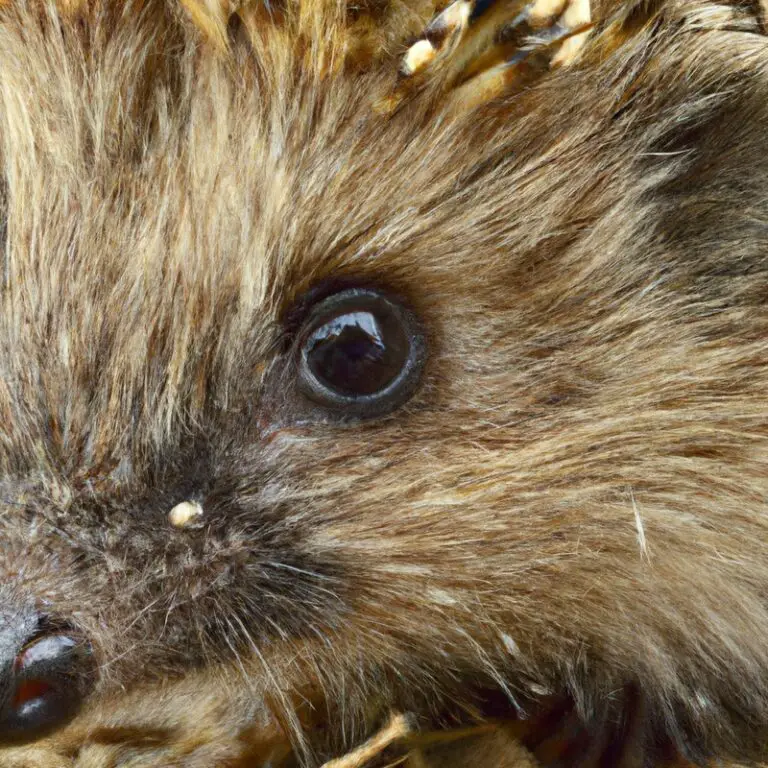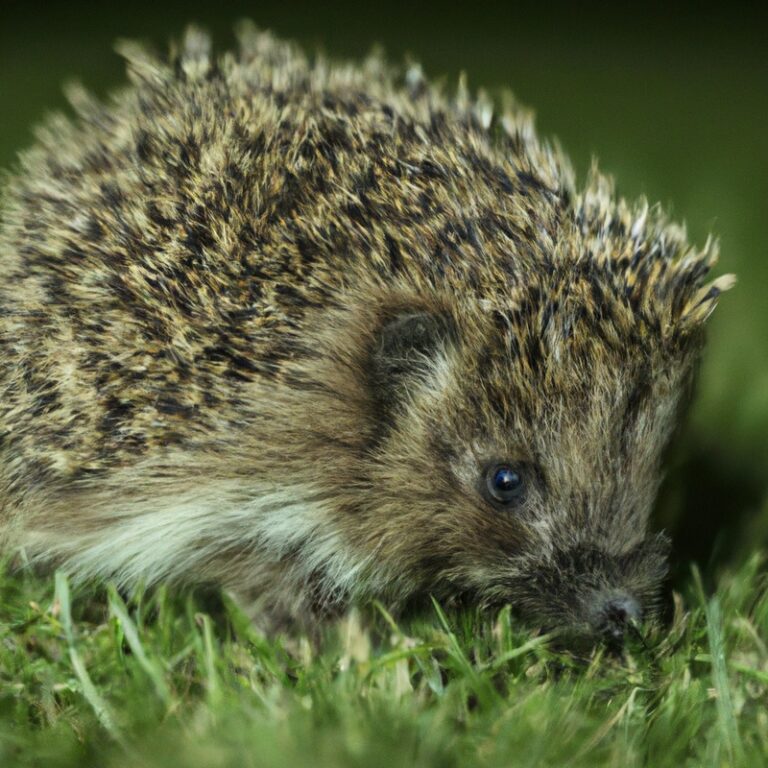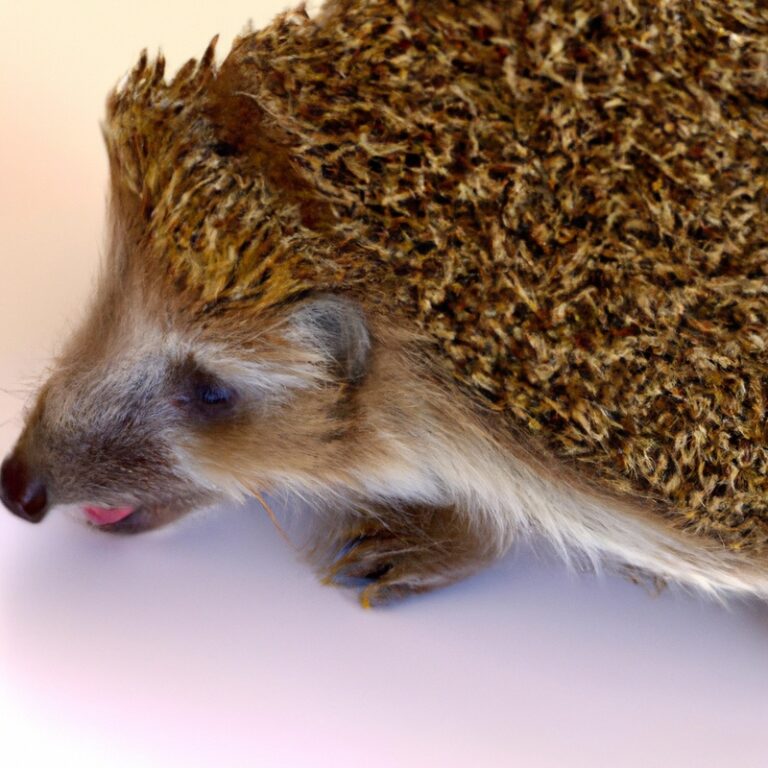What Is The Hedgehog’s Role In Controlling Beetle Populations?
Key Takeaways:
- Hedgehogs play a crucial role in controlling beetle populations through their natural predator-prey relationship.
- By consuming beetles, hedgehogs help maintain a balanced ecosystem and prevent beetle populations from becoming too abundant.
- The introduction of hedgehogs into beetle-infested areas can be an effective and sustainable method for beetle control.
- Conservation efforts should focus on protecting hedgehog habitats to ensure their continued contribution to controlling beetle populations.
Are you tired of battling with pesky beetles in your garden? Well, I have some good news for you – hedgehogs might just be your secret weapon.
These adorable spiky creatures play a vital role in controlling beetle populations, thanks to their natural feeding habits and behavior.
In this blog, we’ll delve into the fascinating world of hedgehogs and explore their habitat, diet, and the important role they play in keeping beetle populations in check. Get ready to discover how these little heroes can help maintain a balanced ecosystem and ensure your garden remains pest-free.
So, let’s get started!
| Roles of Hedgehogs in Controlling Beetle Populations | |
| Roles | Explanation |
| Hunting and predation | Hedgehogs are natural hunters and prey on beetles, consuming large numbers of them. |
| Habitat modification | Hedgehogs help in maintaining balance within ecosystems by controlling beetle populations, which may otherwise cause damage to vegetation or prey on other insect species. |
| Food chain regulation | By controlling beetle populations, hedgehogs ensure that the population of other species that rely on beetles as a food source remains stable. |
| Pest control in gardens | Hedgehogs can be beneficial in gardens as they feed on various garden pests, including beetles, thus helping to protect plants and crops. |
| Ecological balance | By playing their role in beetle control, hedgehogs contribute to the overall ecological balance of their habitats. |
Hedgehogs and Their Natural Habitat
Hedgehogs thrive in a variety of habitats, including woodlands, meadows, and gardens.
Exploring the Habitat of Hedgehogs
Hedgehogs are small nocturnal mammals that can be found in a variety of habitats.
They are commonly found in forests, woodlands, meadows, and gardens across Europe, Asia, and parts of Africa.
Hedgehogs are adaptable creatures and can thrive in both rural and urban areas.
They prefer areas with dense vegetation and access to water sources like ponds or streams.
They often make their homes in nests made of leaves, grass, and twigs.
These small mammals are excellent climbers and can navigate through bushes and hedges with ease.
Overall, hedgehogs are resilient and can adapt to a range of natural habitats, making them a fascinating species to explore.
The Diet of Hedgehogs
Hedgehogs have a varied diet that mainly consists of insects. They love to munch on beetles, worms, slugs, and snails.
In addition, they also enjoy feasting on fruits, berries, and even small vertebrates like frogs and mice.
Their flexible diet helps maintain a balanced ecosystem by controlling the population of pests like beetles. So next time you see a hedgehog scurrying about, remember they’re doing their part in keeping those beetles in check.
The Relationship Between Hedgehogs and Beetles
Hedgehogs play a role in controlling beetle populations.
The Role of Hedgehogs as Natural Predators
Hedgehogs play an important role as natural predators. They help to keep balance in ecosystems by controlling the populations of insects, particularly beetles.
Hedgehogs feed on various types of beetles and their larvae, which helps to reduce their numbers.
By doing so, hedgehogs contribute to pest control in gardens and other natural habitats. Their foraging behavior and appetite for beetles make them valuable allies in maintaining the health and biodiversity of ecosystems.
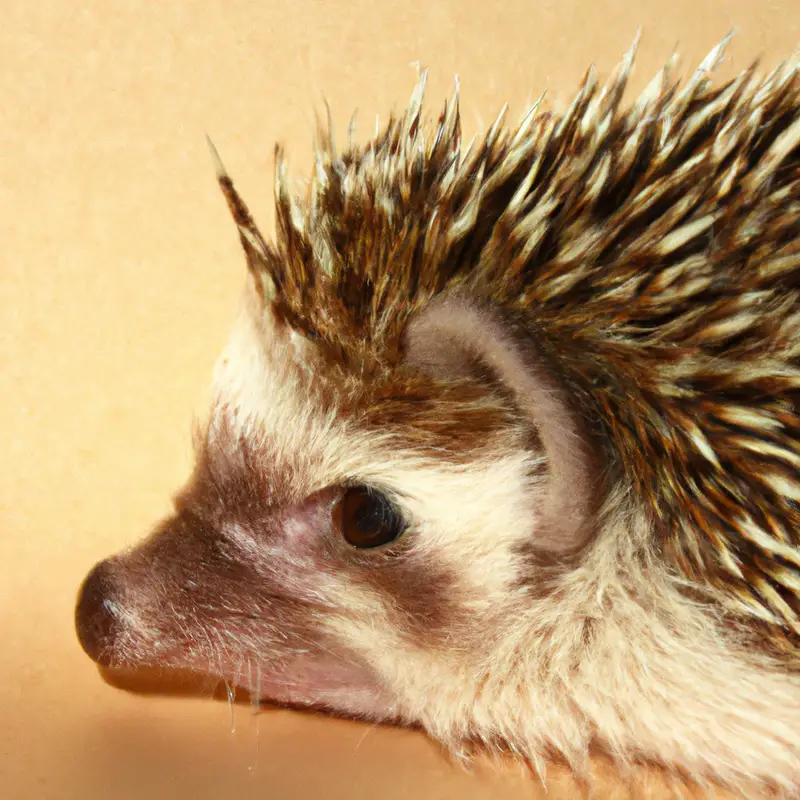
Hedgehogs’ Impact on Beetle Populations
Hedgehogs have a significant impact on beetle populations.
They play a crucial role in controlling beetle numbers by feeding on them.
Their diet includes a variety of beetles, such as ground beetles and May beetles.
As hedgehogs consume beetles, they help to maintain a balance in the ecosystem, preventing beetle infestations that could damage plants and crops.
By doing so, hedgehogs contribute to the overall health of the environment.

Hedgehogs’ Feeding Patterns and Behavior
Hedgehogs are nocturnal animals with unique feeding habits and behaviors.
Nocturnal Feeding Habits of Hedgehogs
Hedgehogs are nocturnal creatures, meaning they are most active at night.
This includes their feeding habits.
Hedgehogs primarily feed on insects and other small invertebrates, such as worms, slugs, and beetles.
They use their sharp teeth and strong jaws to crunch through the exoskeletons of these creatures.
Hedgehogs have a keen sense of smell, which helps them locate their prey.
Their nocturnal nature allows them to forage for food in the quiet and darkness of the night.
It’s fascinating how these little creatures have adapted to their environment!
The Role of Hedgehogs in Beetle Infestation Prevention
Hedgehogs play an important role in preventing beetle infestations. Their diet mainly consists of insects, such as beetles, which helps control their populations.
With their natural foraging behavior, hedgehogs can help reduce beetle numbers in gardens and other habitats.
They are skilled hunters and can easily locate and consume a significant number of beetles. By having hedgehogs around, you can rely on them to naturally keep beetle infestations in check without the need for harmful pesticides.
Hedgehog Conservation Efforts
Efforts to conserve hedgehogs are essential for their survival.
Efforts include habitat protection and creating safe corridors for their movement.
Threats to Hedgehog Populations
Hedgehog populations are facing several threats that are negatively impacting their numbers. Urbanization and habitat loss are major concerns, as hedgehogs rely on a diverse range of natural habitats.
Human activities, such as building roads and clearing land for development, disrupt their living spaces.
Another threat is the use of pesticides, which can contaminate the hedgehogs’ food sources and harm their health. Additionally, road accidents pose a significant risk to hedgehogs, as they often roam at night and may be struck by vehicles.
These threats highlight the need for concerted efforts to protect hedgehog populations and ensure their survival.
The Importance of Hedgehog Conservation
The importance of hedgehog conservation cannot be underestimated.
Hedgehogs play a crucial role in maintaining the balance of ecosystems.
They are natural pest controllers, preying on insects, particularly beetles, which helps in keeping the population of these pests in check.
Additionally, hedgehogs contribute to the overall biodiversity of an area and provide a valuable food source for other predators.
Without active conservation efforts, these adorable creatures may face a decline in population, leading to ecological imbalances.
It is important that we protect their habitats and advocate for their conservation.
Frequently Asked Questions about Hedgehog’s Role in Controlling Beetle Populations
Do hedgehogs eat all types of beetles?
Hedgehogs have a varied diet that includes beetles, but they do not necessarily eat all types of beetles.
Their diet primarily consists of insects, earthworms, and other small creatures they can find.
While they may eat some types of beetles, they may not consume every species they encounter.
Hedgehogs have different preferences and may prioritize certain foods over others.
It’s important to remember that each hedgehog is unique and their dietary preferences may vary.
What other pests do hedgehogs control?
Hedgehogs are natural pest controllers and help control populations of various insects and invertebrates. Some pests that hedgehogs commonly feed on include slugs, snails, beetles, caterpillars, and even small rodents.
This makes them beneficial in gardens and agricultural areas, as they can help reduce damage caused by these pests.
Hedgehogs are known to have a voracious appetite for pests, making them a valuable asset for pest control in natural environments.
How can I attract hedgehogs to my garden to control beetles?
To attract hedgehogs to your garden and help control beetles, consider creating a welcoming habitat. Provide shelter like log piles or hedgehog houses.
Leave a section of your lawn untidy to encourage insects, the hedgehogs’ food source.
Avoid using pesticides or slug pellets, as these can harm hedgehogs. Provide fresh water in a shallow dish and offer hedgehog-friendly food like cat or dog biscuits.
Remember to be patient, as it may take some time for hedgehogs to find your garden.
Final Verdict
Hedgehogs play a crucial role in controlling beetle populations through their natural habitat exploration, nocturnal feeding habits, and predation behaviors.
They help maintain a balanced ecosystem by keeping beetle populations in check, which helps prevent infestations and damage to gardens and crops.
However, hedgehog populations are facing threats, making conservation efforts crucial.
To attract hedgehogs to your garden and promote beetle control, provide suitable habitats and food sources while avoiding harmful pesticides.
By supporting hedgehog conservation, we can ensure the continued ecological benefits they bring in controlling beetles and other pests.

